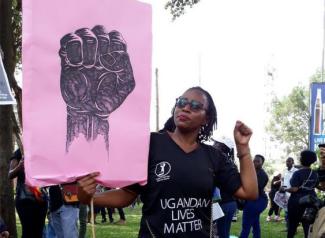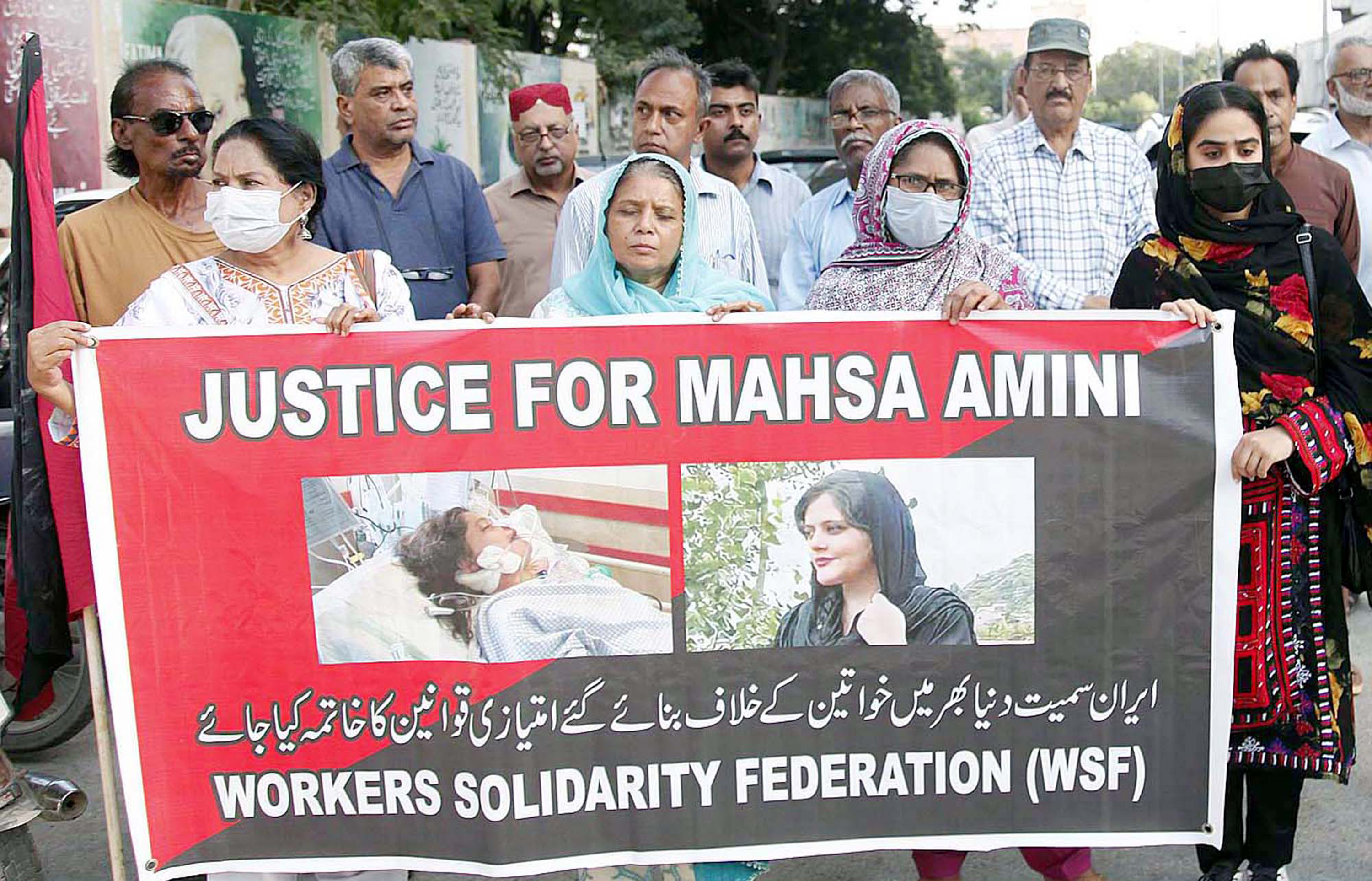Gender-based violence
Women take on the patriarchy

In May 2019, a member of a group of male university students leaked a list of 230 girls deemed “easy to sleep with”. The list came along with their phone numbers and the universities they attend. There was no action taken by the universities – and neither from the police, although it was a clear case of defamation and breach of data privacy. Only other women noticed what had happened.
If women don’t stand up for themselves, nothing is done against sexual harassment and gender-based violence. But slowly, they are beginning to push back.
Between May 2017 and June 2018, over 40 Ugandan women were murdered or kidnapped. Feminists used social media to organise a Women’s Protest March in Uganda’s capital Kampala in June last year. Literally at the last minute, the police gave their permission.
For the first time, I attended a march where security forces offered protection for the protesters instead of tear gas – a regular occurrence in Uganda when masses get together to exercise their right to protest publicly.
For me, this women’s march was #MeToo in action: the mix of online activism and voices had merged into offline action. It was also the starting point of public action to protest against the rampant violence against women. Now, more and more Ugandan women are speaking out.
Unfortunately, the negative response of society towards these voices is showing us how endemic and systematic sexual abuse is.
It’s not hard to garner sympathy from the public when women are murdered. But when you challenge the “freedom” of men to harass and abuse women under the cloak of patriarchy, culture, religion and whatever, you’d best be prepared for the “tear gas” of the digital age: social-media bullying. On top of that, we hear the very loud silence of the law. All this reveals that Ugandan society is still teeming with anti-women’s rights sentiments.
Tina Musuya, executive director of the Centre for Domestic Violence Prevention (CEDOVIP), says, sexual harassment at the workplace “happens widely”, adding that those who speak up against it are “victimised”.
Case in point: Samantha Mwesigwa is a senior state attorney with the Ministry of Justice and Constitutional Affairs. She had suffered sexual harassment for ten straight years at the hands of her former director Christopher Gashirabake, now deputy solicitor general. Mwesigwa says she tried “all legal means” to get justice, but to no avail. “The Justice Ministry has let me down,” she reports. Recently she decided to take her story to social media, and finally her claim of sexual harassment and also the denial of the accused get the attention they deserve. Hopefully, her case will now be taken to the courts, after ten years of suffering in silence.
Samantha Mwesigwa is a state attorney. How does a poor woman without that political clout fare?
On the positive side: this is the #MeToo movement in Uganda today. Brave women coming out to demand justice, no matter the consequences, raising the flag for other women to show their support with hashtags and other forms of online and offline activism.
Is it enough? No, it is not. The time it takes to get justice – if you get justice at all – is long enough to frustrate women until they give up. The support for abusers, like men who indulge in revenge pornography, is still unacceptably strong. A woman whose nude pictures are leaked without her consent is held liable for participating in the production and distribution of pornography under Uganda’s Anti-Pornography Act. The police even take the extra measure of issuing a public summons to victims, thereby sending a message to society that it is more acceptable to further harass an abused woman than it is to hold her abuser accountable.
Yet finally, if slowly, it looks like the tide is changing in Uganda. With women speaking up every day, it will be harder to continue to justify sexual harassment and other forms of abuse of power and privilege. Ignore the women’s protests for a time, maybe. Justify sexual violence forever – impossible!
Lindsey Kukunda is a writer, editor and digital safety trainer and also director of the civil-society organisation “Not Your Body”. She lives in Kampala in Uganda.
lindseykukunda@gmail.com
@RizaLouise, @NotyourbodyUg













